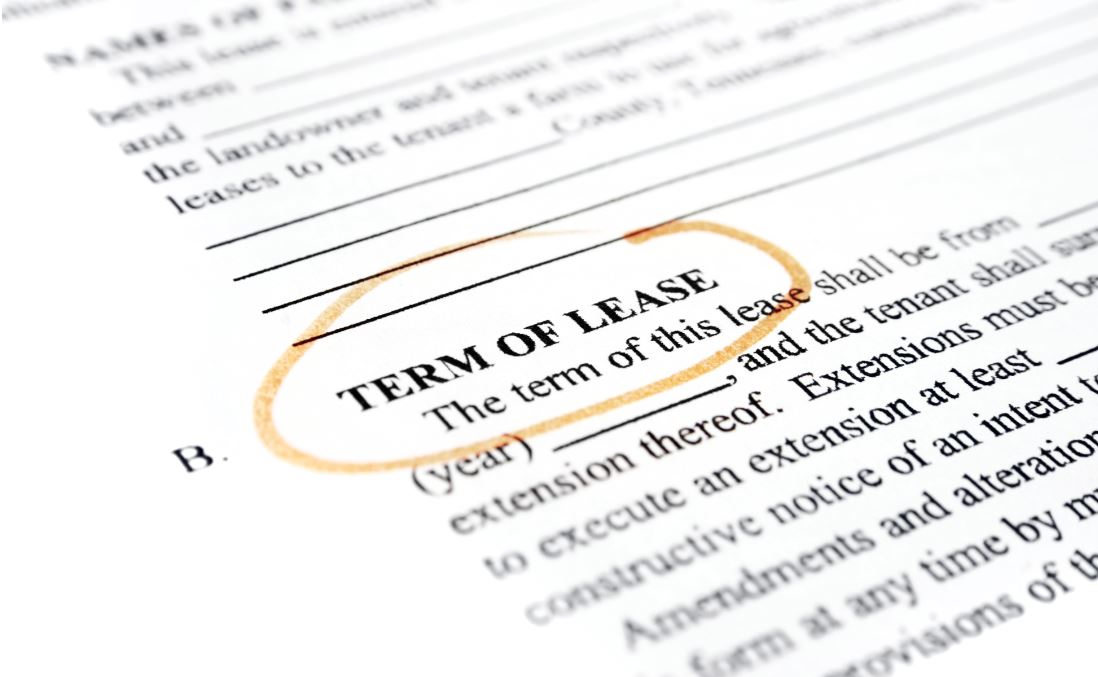There’s an old saying that goes “leave it to the professionals”.
 When you need a haircut, go to a barber. When you need your car fixed, see a mechanic. Seems obvious when you put it in these terms, but in today’s Do It Yourself (DIY) culture, business owners are increasingly circumventing professional services to go it alone. In the world of animal health, negotiating a risk-free veterinary office lease with fair and reasonable economic terms is an essential component to mitigating risk and running a successful clinic – and yet – it’s not always obvious to practitioners why they should consult a professional veterinary office lease negotiator.
When you need a haircut, go to a barber. When you need your car fixed, see a mechanic. Seems obvious when you put it in these terms, but in today’s Do It Yourself (DIY) culture, business owners are increasingly circumventing professional services to go it alone. In the world of animal health, negotiating a risk-free veterinary office lease with fair and reasonable economic terms is an essential component to mitigating risk and running a successful clinic – and yet – it’s not always obvious to practitioners why they should consult a professional veterinary office lease negotiator.
Signing your lease is one of the most important, expensive, and significant commitments you’ll ever make as a veterinarian, and going in blind or ill prepared can have lasting implications. Here are just a few reasons why you should leave your lease negotiations to the pros.
1. The Doomed DIYer
The obvious upside in not hiring a professional veterinary office leasing negotiator is that you won’t have to pay their fees. Often this is the single biggest motivator for veterinarians who view the task as one they can easily tackle themselves. Of course, as with many such tasks, you get what you pay for.
Consider the amateur handyman who decides to build his own furniture; he can save money by building his own bookcase, but what happens one month later when the shelves give out because it was poorly constructed? The bookcase collapses, the objects on the shelves end up broken, it creates a mess, and leaves the “handyman” right back where he started – no bookcase, plus one mess, and minus several treasured objects. Because poor planning and mismanagement of a veterinary office lease permeates every aspect of a clinic, this is one area where an investment today can save big bucks tomorrow.
If you sidestep the experts, you won’t be getting their professional guidance and advice, which exposes you to significant financial repercussions and the unnecessary risks that come with a poorly negotiated lease agreement. Every time you renegotiate or renew your lease, you are committing to another $500,000 – $1,000,000 contract. Spending a fraction of this contract value to ensure that your future is protected just makes good business sense. The value that a professional veterinary office lease negotiator brings, both economically and in terms of risk reduction, is worth far more than the initial investment of their fee, not to mention the substantial, long-term savings that can be achieved with proper representation.
2. More Time to Dedicate to Your Clinic
The most immediate benefit to working with a professional lease negotiator is the amount of time saved. Spending more time helping your customers is critical to the clinic’s success. When you decided to open a veterinary clinic/hospital, you probably didn’t realize you were signing up for all of the administrative burdens required to run a successful clinic. Whether you’re just starting out, or are growing an established clinic, taking precious time away to review the lease, research market rental rates, negotiate with your landlord, and understand tenant rights is a time-consuming nuisance.
Don’t be fooled into thinking that the only step in lease negotiations is the initial review and signing of the contract, or that your landlord has prepared a fair lease that will see you through your career. Lease negotiations are a dynamic and potentially lengthy, ongoing process that require a dedicated time investment – if you’re doing it right. A reactive tenant acts only when prompted, or upon finding themselves up against a deadline. Often this means it’s too late to get a favorable outcome, i.e. when your lease is about to expire and you’re at the mercy of your landlord. A smart veterinary tenant is pro-active, and by working with a professional negotiator, you will ensure that you have both the leverage and knowledge to be successful in securing a favorable lease agreement for the clinic.

3. Reap the Benefits of Comprehensive Services and Support
Working with a professional veterinary office lease negotiation firm is an eye-opener for most practitioners because they don’t realize how much more they can be doing to optimize their clinic. Professionals will not only identify landlord-set lease traps and negotiate the best deal for you, but they also provide a wealth of business acumen and resources to improve your clinic. Lease negotiation is a core function, but there is a wide spectrum of services that a lease negotiation firm provides, including insight from market research and data analysts, in-house brokers, attorneys, and ex-landlords. Whether designing asset protection terms, or leveraging emerging market trends to help you map out clinic goals, your lease negotiator is backed by a team of experts who put all the pieces together, and deliver a results-focused business solution for your peace-of-mind.
4. Your Future Self Will Thank You for Strategy-Planning Now
Most veterinarians are naturally eager to build out the clinic and open their doors; however, in their haste they often fail to consider their mid-range and long-term goals. The details in your office lease dictate key aspects of your business, such as the ability to bring in specialists, the conditions under which you sell the clinic, obligations and restrictions for remodeling or expanding, etc., which is why the details within the lease should not be taken lightly. A skilled veterinary office lease negotiator will outline a comprehensive negotiation strategy that aligns with both your short and long term goals, and takes the big picture into account – so your lease doesn’t hinder you as you progress in your career.
5. Relax! Someone Else Will Fight Your Battles
Lease negotiations with a current or prospective landlord sometimes mean playing hardball, and some individuals are simply not comfortable with, or capable of getting tough and asking for what they want and deserve. But it’s not just about being assertive; you also have to know what the stakes are, and how to best achieve the desired results. A lease negotiator acts as your own personal advocate to represent your best interests, and ensures that your leasing needs are being met. For example, as a veterinary tenant, you may not immediately appreciate the importance of addressing “relocation language” that prevents your landlord from moving your clinic, or the amendment of the “assignment” clause, preventing your landlord from taking 50% or more of your clinic sale proceeds at transition time. Your negotiator, however, knows that strategic tactics today will certainly pay off later, and that every word in your lease agreement can have major implications down the road.
Keep in mind that your landlord will draft a lease that benefits them, not you. In their hands, the lease is a tool towards achieving financial flexibility and power. Your lease negotiator can convert a bad lease into armor to protect your assets, family and estate, and optimize the lease in your favor. They will negotiate the best terms and rental rates possible so that you, not your landlord, are in control of your financial future.
6. Do you speak “Legalese”? We do!
 Veterinary office lease agreements can be complex and lengthy, full of technical legal jargon, and contain terms that aren’t tenant-friendly for the average business owner. Navigating the tricky and complex language is just one challenge; the bigger obstacle is identifying expensive traps and risks, and understanding what must be done to reduce or eliminate them. Most leases leave the tenant vulnerable to expensive penalties and inconvenient pitfalls that can have devastating effects on their career or clinic. Before signing, it’s your responsibility to review the proposed terms. But how will you know what to look for? A seemingly innocuous statement may harm you down the road, and similarly, the absence of a key clause can leave you, your assets, your family, and your clinic exposed.
Veterinary office lease agreements can be complex and lengthy, full of technical legal jargon, and contain terms that aren’t tenant-friendly for the average business owner. Navigating the tricky and complex language is just one challenge; the bigger obstacle is identifying expensive traps and risks, and understanding what must be done to reduce or eliminate them. Most leases leave the tenant vulnerable to expensive penalties and inconvenient pitfalls that can have devastating effects on their career or clinic. Before signing, it’s your responsibility to review the proposed terms. But how will you know what to look for? A seemingly innocuous statement may harm you down the road, and similarly, the absence of a key clause can leave you, your assets, your family, and your clinic exposed.
For example, did you know that you can be held financially responsible for the clinic even after a sale or transfer of the lease? Or that you could be forced to bear the financial burden of a forced relocation? Veterinary office leasing professionals will review your lease and identify risky terms that have been intentionally buried or obscured by your landlord. The negotiator will use their skills to revise the lease to work in your favor – something that an untrained professional simply cannot do. This is one of the key differences between a professional veterinary office lease negotiator and a general commercial lawyer/attorney. While lawyers can be experts in contract management and negotiation, they often lack veterinary industry and real estate experience to produce a lease agreement that both protects and enhances the value of an animal hospital. If you’ve retained an attorney, ask them how many veterinary office leases they’ve negotiated. Veterinary lease negotiators have specialized expertise in contract negotiation, veterinary tenant rights, practice optimization, and, they understand the industry inside and out.
Would you go to a mechanic to get your haircut, or a barber to fix your car? If the answer is no to both, why would you, as a veterinarian, handle your own lease negotiation? Gambling with the fate of your entire clinic hardly seems worthwhile when you have a team of specialists just a phone call away. Some things are just better left to the experts!
Questions about your lease? Call us at 1.800.459.3413
for your personalized consultation with a leasing expert, today!




